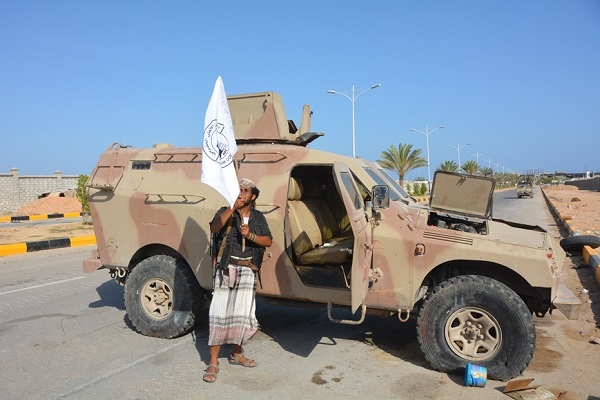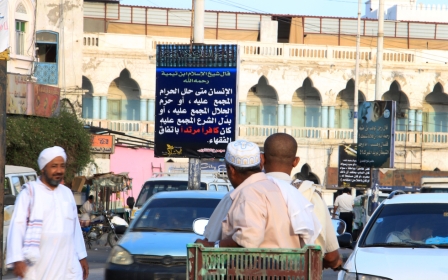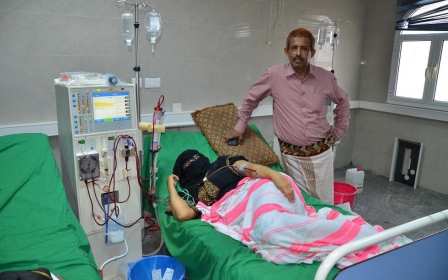Dozens dead in suicide bombings in Yemen's Mukalla

A wave of suicide bombings targeting Yemeni troops killed at least 42 people on Monday in the southeastern city of Mukalla, which al-Qaeda was driven out of in April, officials said.
Provincial capital Mukalla "witnessed five suicide attacks in four areas," the governor of the vast Hadramawt province, Ahmed Saeed bin Breyk, told AFP.
Three simultaneous bombings hit security checkpoints in the coastal city at sunset, just as troops fasting during the holy Muslim month of Ramadan were breaking their fast, a security official said.
In the first attack, a suicide bomber on a motorbike asked soldiers if he could eat with them before blowing himself up, the official said.
Two other bombers approached soldiers on foot elsewhere in the city before detonating their explosive vests.
Shortly afterwards, two suicide bombers launched a fourth attack and blew themselves up at the entrance of an army camp, the official said.
In all, the attacks killed 17 soldiers as well as a woman and child who were passing by, he said.
But new tolls were later announced indicating that the attacks had killed 42 people.
The Islamic State (IS) group claimed responsibility for the attacks, saying in a statement that eight of its suicide bombers killed 50 members of Yemen's security forces, according to US-based monitor SITE Intelligence Group.
Mukalla remained under al-Qaeda control for one year before pro-government troops, backed by a Saudi-led coalition, drove the militants out in April.
But the militants retain a strong presence and still control several towns in the interior valley of Wadi Hadramawt.
The Pentagon revealed last month that a "very small number" of US military personnel had also been deployed around Mukalla in support of the operation, led by special Saudi and Emirati forces.
The US Navy has several ships nearby, including an amphibious assault vessel, the USS Boxer, and two destroyers.
Al-Qaeda in the Arabian Peninsula, based in Yemen since 2009, and the Islamic State (IS) group have exploited the power vacuum created by the conflict in Yemen to expand their presence in the south and southeast.
In May, a suicide bombing claimed by IS and a second blast killed 47 police in Mukalla - a city of 200,000 people.
There has been no let-up in the longstanding US air war against al-Qaeda's Yemen-based branch, which it regards as the network's most dangerous.
US strikes have taken out a number of senior al-Qaeda commanders in Yemen over the past year.
'Significant threat'
The US military said this month that it had killed six al-Qaeda militants in three separate air strikes in central Yemen.
AQAP "remains a significant threat to the region, the United States and beyond," US Central Command, which oversees military operations in the Middle East, said in a statement.
CIA Director John Brennan told the Senate Intelligence Committee on 16 June that AQAP has several thousand "adherents and fighters" while there are also "several hundred" militants loyal to the IS group in the war-torn country.
In recent month, AQAP and IS militants have also claimed several attacks on government and coalition targets in second city Aden, where the government has its base.
The Saudi-led coalition intervened in Yemen in March 2015 in support of President Abd Rabbuh Mansour Hadi against Shia Houthi rebels who had seized the capital Sanaa and other areas.
But it later turned its firepower against militants impeding the government's bid to firm up its grip on southern areas recaptured from the rebels.
New MEE newsletter: Jerusalem Dispatch
Sign up to get the latest insights and analysis on Israel-Palestine, alongside Turkey Unpacked and other MEE newsletters
Middle East Eye delivers independent and unrivalled coverage and analysis of the Middle East, North Africa and beyond. To learn more about republishing this content and the associated fees, please fill out this form. More about MEE can be found here.




